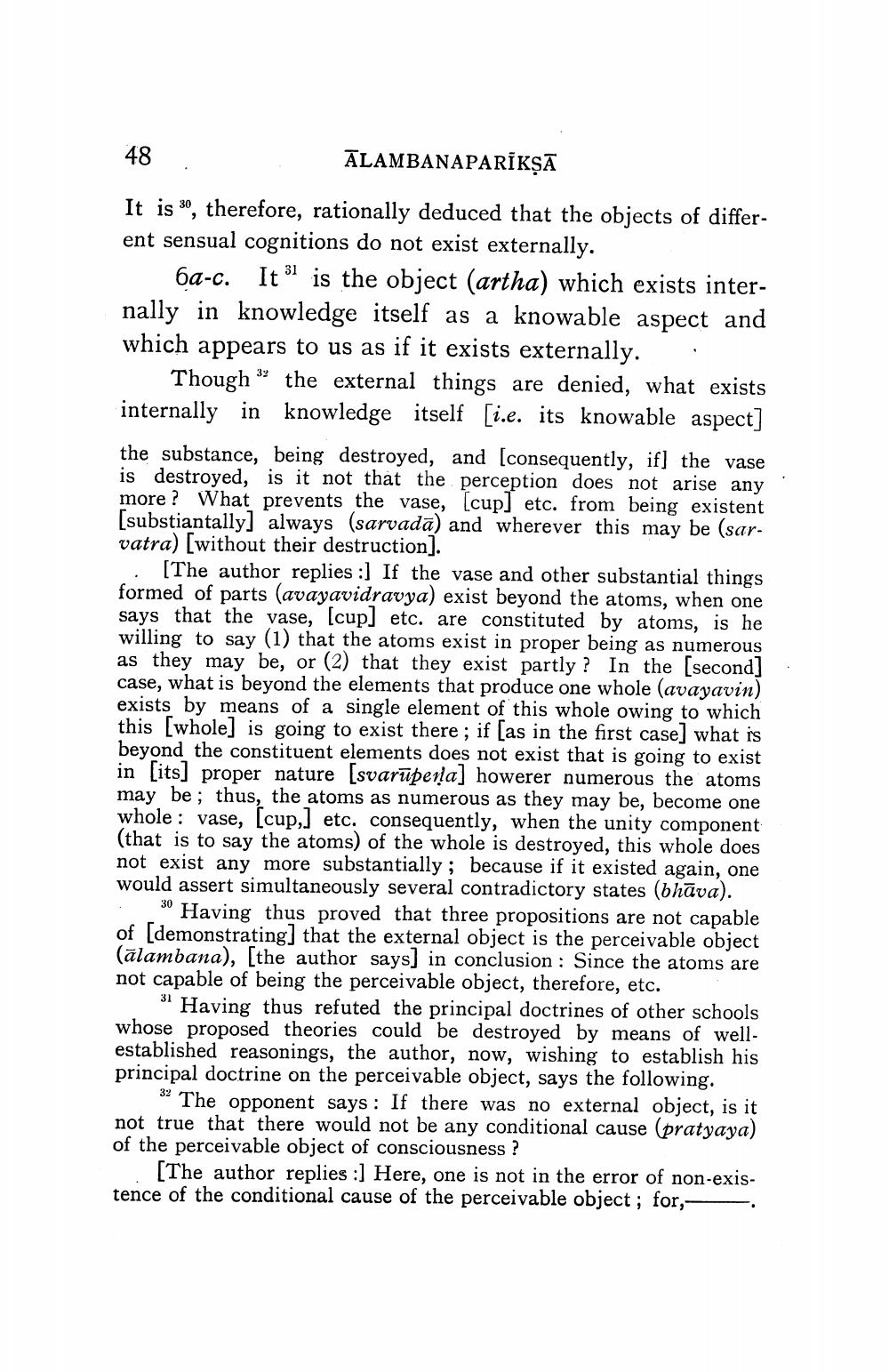________________
48
ĀLAMBANAPARĪKṢĀ
It is 30, therefore, rationally deduced that the objects of different sensual cognitions do not exist externally.
6a-c. It is the object (artha) which exists internally in knowledge itself as a knowable aspect and which appears to us as if it exists externally.
Though the external things are denied, what exists internally in knowledge itself [i.e. its knowable aspect]
the substance, being destroyed, and [consequently, if] the vase is destroyed, is it not that the perception does not arise any more? What prevents the vase, [cup] etc. from being existent [substiantally] always (sarvada) and wherever this may be (sarvatra) [without their destruction].
[The author replies:] If the vase and other substantial things formed of parts (avayavidravya) exist beyond the atoms, when one says that the vase, [cup] etc. are constituted by atoms, is he willing to say (1) that the atoms exist in proper being as numerous as they may be, or (2) that they exist partly? In the [second] case, what is beyond the elements that produce one whole (avayavin) exists by means of a single element of this whole owing to which this [whole] is going to exist there; if [as in the first case] what is beyond the constituent elements does not exist that is going to exist in [its] proper nature [svarupena] howerer numerous the atoms may be; thus, the atoms as numerous as they may be, become one whole vase, [cup,] etc. consequently, when the unity component (that is to say the atoms) of the whole is destroyed, this whole does not exist any more substantially; because if it existed again, one would assert simultaneously several contradictory states (bhava).
Having thus proved that three propositions are not capable of [demonstrating] that the external object is the perceivable object (alambana), [the author says] in conclusion: Since the atoms are not capable of being the perceivable object, therefore, etc.
30
Having thus refuted the principal doctrines of other schools whose proposed theories could be destroyed by means of wellestablished reasonings, the author, now, wishing to establish his principal doctrine on the perceivable object, says the following.
31
32 The opponent says: If there was no external object, is it not true that there would not be any conditional cause (pratyaya) of the perceivable object of consciousness?
[The author replies :] Here, one is not in the error of non-existence of the conditional cause of the perceivable object; for,




